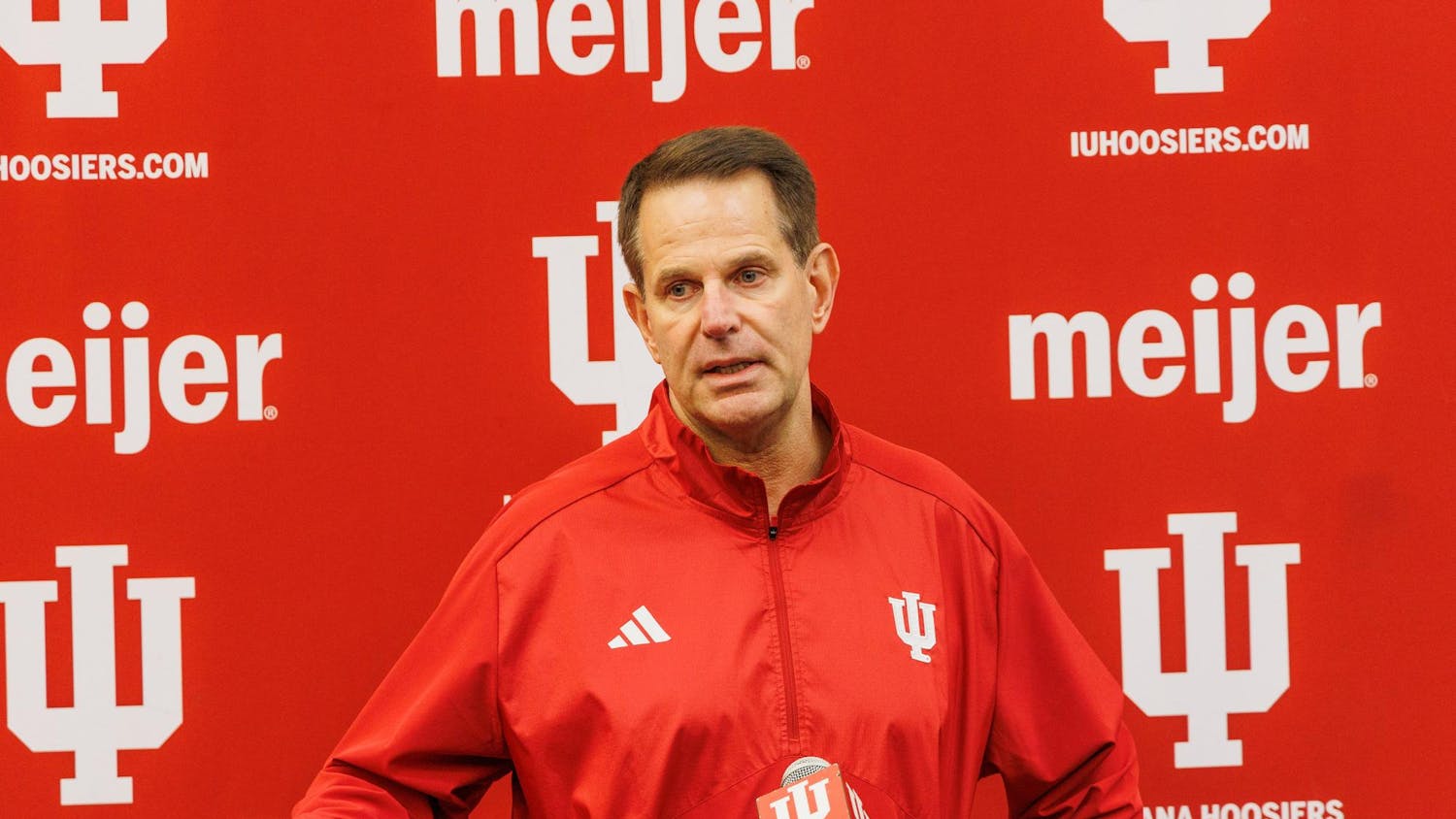In an effort to educate citizens about GMOs, Veldman helped arrange a panel discussion featuring five community members at City Hall on Monday. She said she believes there is a lot of confusion surrounding GMOs.
“I want for people to really have an understanding of the broader issues, so when they are making a judgement it’s an informed decision,” she said.
Veldman said the IU School of Public Health found in a study that 77 percent of market customers want GMO produce to be labeled. She also said she wants what is best for market customers, farmers and vendors. Answering the need for labeling could be a step in that direction.
Marti Crouch, an environmental consultant, explained that genetically modifying an organism means removing a specific gene from an organism, manipulating it in a laboratory and then reintroducing it into that organism’s DNA. This is done to strengthen certain qualities like size or r esistance to pesticides.
Produce is also genetically modified to withstand herbicides and insecticides, which kill crop-destroying pests like rootworm and earworm — two bugs that can be fatal.
Crouch acknowledged public concerns about food safety, particularly about Bt corn, which contains Bacillus thuringiensis, a soil bacterium to keep bugs away from crops.
“The Bt proteins are insecticides, and they’re produced inside the tissues of the corn plant all the time,” she said. “So they’re present in the product that you eat. These have been approved for human consumption ... some of us are not confident in the regulatory process.”
David Simmons, a farmer who grows Bt sweet corn, said GMOs are great. They save him time, labor, chemicals and money, and are advantageous to the environment, he said. He doesn’t have to till his land as often, and that reduces soil erosion. He said his corn is more resistant to weeds and bugs, and that means he doesn’t have to spray chemicals into the environment.
“I didn’t spray a single acre of my sweet corn his year,” he said.
Still, several panelists disagreed on the necessity and morality of growing genetically modified food.
“My own personal belief is that it’s unnecessary,” said Jeff Padgett, a farmers market gardener. He said he doesn’t use any chemical fertilizers.
“What we’ve found is it take a lot of effort, and it takes a lot of record keeping to see how best to grow our crop without those things, but it can be done,” Padgett said. “That’s where I come from.”
Veldman said she wants citizens to realize GMOs are “a complex issue.”
Ultimately, she said the decision to require labeling is up to the Parks and Recreation Department — but the Farmers Market Advisory Council, which includes customers and farm vendors, also has a say.
“Certainly given the survey results, there’s a lot of interest in having produce labeling,” she said.





